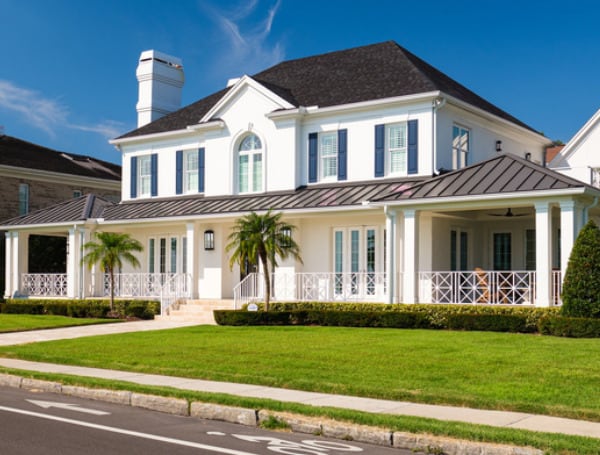TFP File Photo A priority of Senate President Kathleen Passidomo to make housing more affordable for workers started to move forward Wednesd
A priority of Senate President Kathleen Passidomo to make housing more affordable for workers started to move forward Wednesday despite some questions about issues such as preventing rent controls.
The Senate Community Affairs Committee unanimously backed the wide-ranging bill (SB 102), which would provide incentives for private investment in affordable housing, pre-empt local government rules on zoning, density and building height in certain circumstances, encourage mixed-use development in struggling commercial areas and bar local rent controls.
The bill, dubbed the “Live Local Act,” carries a $711 million price tag.
In the news: Florida Teen Arrested For Shooting Death Of Another Teen At Local Fair
Community Affairs Chairwoman Alexis Calatayud, a Miami Republican who is sponsoring the bill, said the goal is that housing costs would not exceed 30 percent of families’ household incomes.
“We need to make sure Floridians can live close to good jobs, schools, hospitals and the critical centers of their communities in a way that fits comfortably within their household budgets,” Calatayud said.
But Democrats said setting a definition of affordable at 120 percent of an area’s median income will have different impacts across the state, with affordable rentals in Miami starting at $2,200 for a one-bedroom apartment.
Sen. Lori Berman, D-Delray Beach, said the proposal is a way to start addressing the “affordable housing crisis.”
“Putting more money into affordable housing has to be a benefit for the state, but we are going to have to have accountability,” Berman said.
In the news: VIDEO: Gronk, From The Super Bowl, Believes Tom Brady Coulda Played Till He’s 50
Berman and others questioned prohibiting local rent controls, as Orange County voters last year approved limits on how much landlords can raise rates. The change hasn’t taken effect because of a legal challenge by the industry groups Florida Realtors and the Florida Apartment Association.
“This is paid sick leave all over again, where the voters in Orange County said we want to put this requirement on business, and it was just a few months later that the Legislature pre-empted it,” Florida AFL-CIO lobbyist Rich Templin said. “And now we’re looking at that again.”
In 2013, the Legislature approved a bill that prevented local governments from setting sick-leave standards for workers after a citizens petition went to the Orange County Commission on the issue.
Several Republican lawmakers said rent control would hinder affordability efforts in Orange County.
“The only thing that’s going to cure this housing shortage issue and the cost and the spikes of rent is supply,” Sen. Jonathan Martin, R-Fort Myers, said. “The supply has to be increased dramatically.”
The bill would direct $150 million a year in documentary-stamp tax revenues from real-estate transactions to the State Housing Trust Fund, with 70 percent of the money focused on converting existing structures into “attainable” housing and projects near military installations. The remaining 30 percent would go to housing for seniors, young adults aging out of foster care and projects in rural areas.
Another $252 million would be moved into the State Housing Initiatives Partnership, or SHIP, program, while $259 million would go to the State Apartment Incentive Loan, or SAIL, program. Those are longstanding programs designed to boost affordable housing.
The proposal also would add $100 million to the Hometown Heroes program, which was created last year to help people such as teachers, health-care workers and police officers buy homes.
Calatayud said about half of the current funding for Hometown Heroes has been used.
Another $100 million would be set aside to offset inflation at new construction projects.
The state budget for the current year includes $362.7 million for affordable housing, with $209 million going to SHIP.
In the news: Elon Personally Intervenes To Restore Twitter Account Of GOP Senator After Post Of Hunting Picture
The bill also seeks to ease local regulations related to such things as zoning, density and height to try to clear the way for multi-family developments in commercial areas.
An incentive labeled “missing middle” would offer tax exemptions on newly constructed developments of 70 or more units that set aside units for tenants who meet certain income requirements.
Developers also could receive property-tax breaks when land is owned by non-profit organizations and leased for at least 99 years to provide affordable housing.
Identical legislation (HB 627) was filed Monday in the House by Rep. Demi Busatta Cabrera, R-Coral Gables. The bills are filed for the legislative session that will start March 7.
Android Users, Click Here To Download The Free Press App And Never Miss A Story. Follow Us On Facebook Here Or Twitter Here. Signup for our free newsletter by clicking here.

